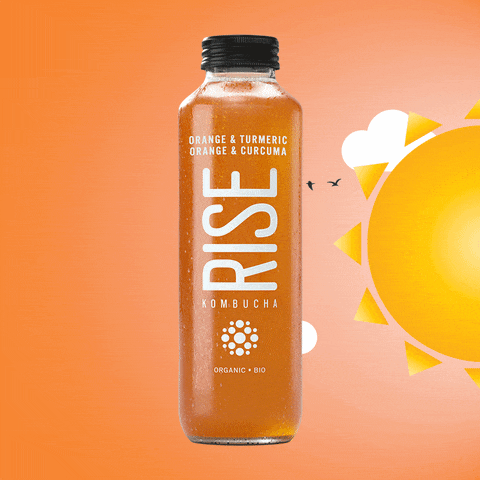Fragrances and Memories, Grip Strength as a Vital Sign, Kombucha for Diabetes?, July 2023- The Hottest Month on Record, Another COVID Article, Importance of Hydration, Foraging for Mushrooms.
The Full Panel meets your TLDR (Too Long; Didn’t Read) needs by delivering the latest medicine & health news in a nutshell. 🥜
Certain fragrances lead to improvements in memory 🧠

Gist: Researchers from the University of California, Irvine, found that exposing older adults to certain fragrances for two hours nightly over six months led to a significant improvement in their memories. The participants experienced a 226% increase in cognitive capacity when compared to a control group. This breakthrough provides an innovative and non-invasive method to potentially counteract dementia.
Nitty-Gritty: Historically, a diminished sense of smell has been linked to the onset of various neurological and psychiatric diseases, including Alzheimer's, Parkinson's, and schizophrenia. While previous research highlighted the positive effects of exposing dementia patients to multiple odours, the UCI team simplified this approach due to its impracticality. By reducing the number of scents and administering them during sleep, the process became more feasible.
The study involved individuals aged 60 to 85, with no memory impairment. They were provided with a diffuser and seven cartridges of different natural oils. The enriched group received full-strength cartridges while sleeping, whereas the control group was given diluted cartridges during sleep. As a result, the enriched group exhibited improved cognitive performance and showed better integrity in the brain pathway called the left uncinate fasciculus. Additionally, participants reported better sleep quality.
Big Picture: The study confirms the profound connection between olfaction (i.e., sense of smell) and memory. Moving forward, the team intends to assess the technique's efficacy on individuals with identified cognitive decline. A product based on this study is anticipated to be released soon for home use.
Original source: here.
Consider grip strength as a new vital sign

Gist: Visiting a primary care doctor typically involves assessing vital signs such as blood pressure and heart rate. However, new research suggests that grip strength should also be evaluated as an indicator of overall health. Grip strength, generated by forearm muscles, measures the force and stability of a person's grip on heavy objects. It's tested using a hand dynamometer, which gauges the force exerted when squeezing two handles. For older adults, the recommended grip strength is 18.5kg for women and 28.5kg for men.
Nitty-Gritty: A large study involving 140,000 adults aged 35-70 found a correlation between an 11-pound decline in grip strength and a 17% increased risk of dying from heart-related issues over four years. This doesn't imply causation but indicates that individuals with stronger grip strength, and consequently higher muscle mass, generally have better overall health. Another study of 27,000 adults over 60 in India found a significant link between weak grip strength and depression. A 2022 study of 1,275 adults aged 51 and older revealed that weak grip strength correlated with an accelerated rate of DNA aging, suggesting that stronger grip strength is linked to slower aging as well.
Big Picture: This suggests that grip strength could serve as a valuable metric for gauging an individual's general well-being and potential health risks. To enhance grip strength, exercises such as the Farmer's Carry, chin-up holds, finger rolls, and squeezing a stress ball are recommended.
Original source: here.
Does Kombucha have anti-diabetic-like effects?

Gist: A pilot clinical trial involving 12 participants conducted by Georgetown University’s School of Health, the University of Nebraska-Lincoln, and MedStar Health found that Type 2 diabetes patients who consumed kombucha, a fermented tea drink, for four weeks had reduced fasting blood glucose levels compared to those who drank a placebo. The research, published in "Frontiers in Nutrition" on August 1, 2023, suggests kombucha's potential as a dietary intervention for lowering blood sugar in diabetics and paves the way for a larger study.
Nitty-Gritty: Kombucha, consumed since 200 B.C. in China, gained U.S. popularity in the 1990s. Some prior studies showed its promise in lowering blood sugar, but this is the first to study its effects on diabetics. The trial used a crossover design where participants drank either kombucha or placebo for four weeks, then switched after a two-month gap. Kombucha reduced average fasting blood glucose levels from 164 to 116 milligrams per deciliter. The American Diabetes Association suggests levels between 70 to 130 milligrams per deciliter.
The drink used mainly contained lactic acid bacteria, acetic acid bacteria, and a yeast called Dekkera. Produced by Craft Kombucha, the beverage has been rebranded as Brindle Boxer Kombucha.
Big Picture: The research highlighted the vast number of Americans at risk of diabetes and hoped for a larger trial to further validate kombucha's benefits in diabetes management. Craft Kombucha provided the drinks, but had no access to the study data. The research didn't receive external funding, and some author affiliations were declared.
It's important to note that not all kombucha is made the equal. Do your research! Always read the label to check for added sugars, beyond what is naturally produced during fermentation.
Original source: here.
July 2023: The hottest month ever recored in human history (probably) 🥵

Gist: July 2023 has been recorded as the hottest month ever, possibly the warmest in human history. This is part of a trend of rising temperatures, with nine of the past ten years being the hottest on record. Such extreme heat has had devastating effects; European heatwaves in 2003 and 2022 resulted in the deaths of approximately 70,000 and 62,000 people, respectively.
Nitty-Gritty: Humans can adapt to heat to an extent, but sustained heatwaves can overwhelm the body's cooling mechanisms. The body primarily cools down through sweating and by redirecting blood to the skin surface. However, increasing humidity impedes the evaporation of sweat, making the cooling process less effective. Adding to this, nights have become hotter, reducing the body's recovery time and affecting sleep quality.
Continued exposure to extreme heat can strain the heart, leading to potential cardiovascular failure. Dehydration from excessive sweating can also put added stress on the heart and kidneys. Without intervention, these factors can lead to severe conditions like heat stroke, organ failure, and even death.
Big Picture: Fortunately, many heat-related deaths can be prevented with the right measures. Keeping hydrated, staying indoors during peak heat, using air conditioning, and cooling the body with water are all effective methods. Vulnerable groups, such as the elderly, pregnant individuals, and those with certain health conditions, need to be especially cautious. Communities can also play a role by implementing early heatwave warnings, planting trees for shade, and adopting eco-friendly cooling solutions like green roofs. To address the root cause, it's imperative to reduce greenhouse gas emissions globally.
Original source: here.
WHO classifies EG.5 as COVID-19 'variant of interest'

Gist: The World Health Organization (WHO) has classified the EG.5 coronavirus strain, which is prevalent in the U.S. and found in several countries like China, South Korea, Japan, and Canada, as a "variant of interest."
Nitty-Gritty: Although the variant accounts for over 17% of U.S. cases, WHO mentioned that evidence does not suggest that EG.5 poses greater public health risks compared to other circulating Omicron descendent strains. However, a more in-depth risk evaluation for EG.5 is deemed necessary. Since the emergence of COVID-19, there have been over 768 million confirmed cases worldwide, causing more than 6.9 million deaths. WHO declared it a pandemic in March 2020 and removed the global emergency status in May this year. Maria Van Kerkhove, WHO's technical lead on COVID-19, indicated that EG.5 is more transmissible but not more severe than other Omicron sublineages. Tedros Adhanom Ghebreyesus, Director General of WHO, expressed concern over the lack of COVID-19 data reporting from many countries. He revealed that only 11% of countries had reported data on hospitalizations and ICU admissions.
Big Picture: As a result, WHO recommended continuous reporting of COVID data and vaccination. Van Kerkhove emphasized that insufficient data is hampering the global effort to combat the virus.
Original source: here.
What would happen if you didn't drink water?💧
Water is essentially everywhere in our world, and the average human is composed of between 55 and 60% water. So what role does water play in our bodies, and how much do we actually need to drink to stay healthy? Mia Nacamulli details the health benefits of hydration. Run time: 4 minutes, 51 seconds.
Consider this before foraging for mushrooms 🍄
Experts — including doctors — are warning a growing number of mushroom foragers to ensure they have proper training and can identify the various species of wild mushrooms before eating them to avoid being poisoned. Click the link below to watch the 2 minute video!

Interested in previous newsletters or other articles we’ve published? Check them out here at: thefullpanel.com
Got a question for us? Suggestions for content you’d like to see? Feedback? E-mail us at: hello@mail.thefullpanel.com

